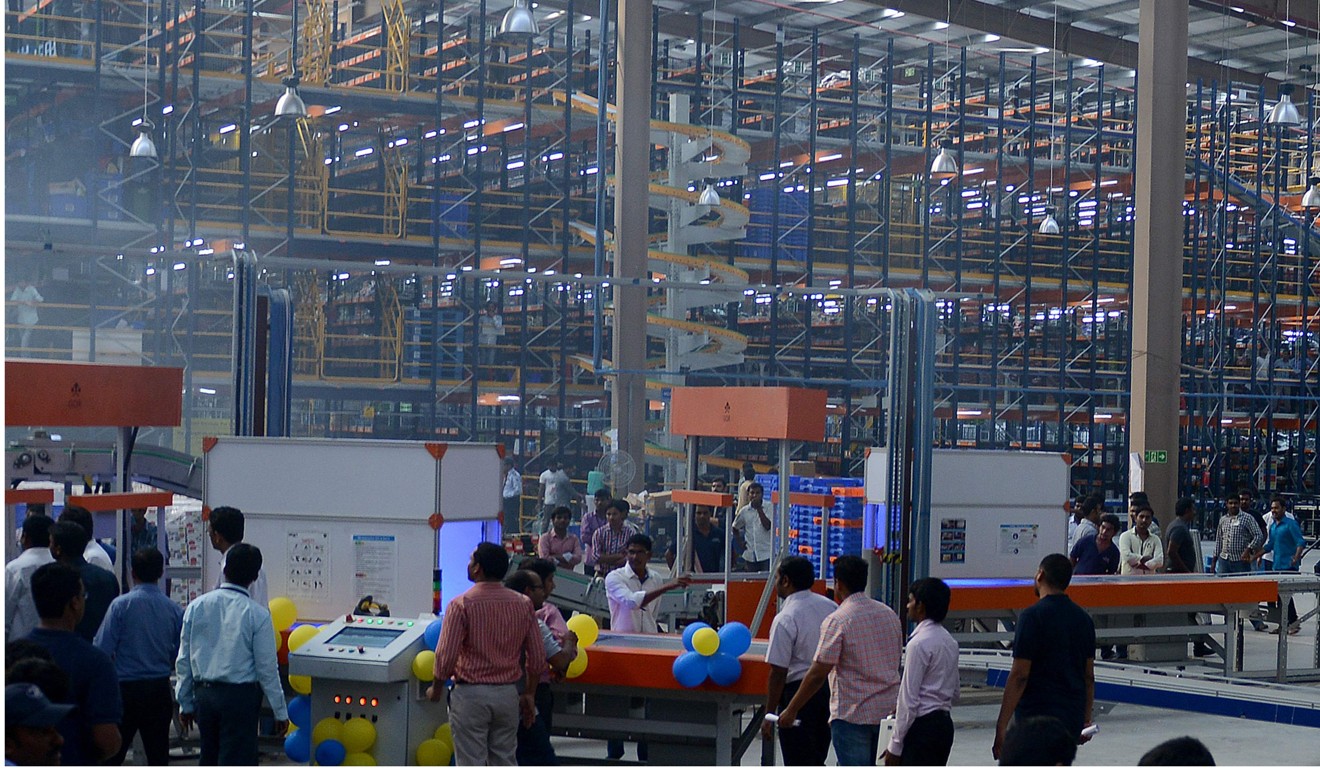
Walmart to buy 77 per cent of Indian e-commerce giant Flipkart for US$16 billion
Walmart’s deal to acquire control of Flipkart, a company backed by Tencent, is the largest ever in e-commerce, according to Bloomberg data
Walmart has agreed to buy a controlling stake in India’s biggest online retailer, striking a blow against rival Amazon.com as the battle for e-commerce supremacy goes global.
The world’s largest retailer will acquire a 77 per cent holding in Flipkart Group for US$16 billion, the companies said in a statement. Flipkart co-founder Binny Bansal and other shareholders will hold the remainder.
The deal – Walmart’s biggest ever – gives it greater access to India’s e-commerce market, which Morgan Stanley has estimated will grow to US$200 billion in about a decade. Flipkart, meanwhile, gets additional capital and expertise to battle Amazon, which has spent billions of dollars to gain customers in India.
Online sales in the world’s second most-populous nation are growing about 35 per cent a year, according to data tracker Euromonitor, fuelled by a rising middle class and urbanisation that present an attractive environment for e-commerce.

For the US retailer, acquiring a stake in Flipkart enables it to tap into India’s retail market without building stores. Walmart once envisioned operating hundreds of locations across India, but it has been unable to open traditional units because of long-standing governmental rules for so-called multibrand international retailers.
Walmart entered India in 2009 through a joint venture with Bharti Enterprises, and took full control of that business in 2013. It currently operates 20 wholesale clubs in India that serve small businesses.
“Online retail is seemingly the only way for a foreign company to have meaningful retail operations in the country,” Barclays analyst Karen Short said in an April 16 note.
The Walmart-Flipkart deal is the largest-ever in e-commerce, according to data compiled by Bloomberg.
Walmart’s investment includes US$2 billion in new equity funding, which the companies said will be used to spur Flipkart’s growth. The companies said they are also in talks with other potential investors, which could result in the US company’s stake being lowered, though it will retain majority ownership. Flipkart will maintain a separate brand and operating structure, the companies said.
The deal represents another missed opportunity for Amazon chief executive Jeff Bezos, who has also failed to create a meaningful presence in China.
Amazon needs another potential high-growth market in which to succeed to prove it can effectively replicate its model beyond North America, and it has been aggressively expanding in India. Bezos has committed US$5.5 billion to the country and his local chief, Amit Agarwal, has made progress by adapting the site to local conditions.
Despite its size and global clout, Walmart has found it necessary to forge alliances in its battle against Amazon, which last year bought Whole Foods Market to gain a foothold in the US grocery industry.
In China, Walmart has acquired a 12 per cent stake in e-commerce player JD.com, and in Japan it teamed up this year with Tokyo’s Rakuten.
India is the next big potential prize after the US and China, where foreign retailers have made little progress against Alibaba Group Holding. New York-listed Alibaba is the parent company of the South China Morning Post.
The deal also shows how Walmart chief executive Doug McMillon is reshaping the company’s global operations, prioritising faster-growing markets like China and India over more mature ones.
Last month, the company agreed to cede control of its British grocery chain, Asda, merging it with rival J Sainsbury. Walmart will retain a 42 per cent stake in the combined company.
Flipkart competes with Amazon across a range of product categories. Besides its own site, it owns fashion portals Myntra and Jabong, and controls 34 per cent of India’s online sales, based on Euromonitor data, followed by Amazon, with 27 per cent.
The Indian company has attracted investment from a range of companies that also includes Microsoft Corp, Tencent Holdings and Tiger Global Management, which will retain stakes.

